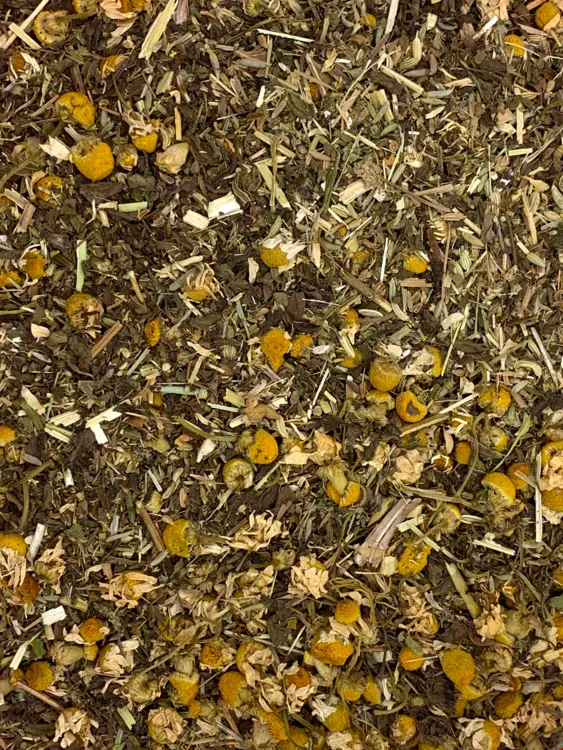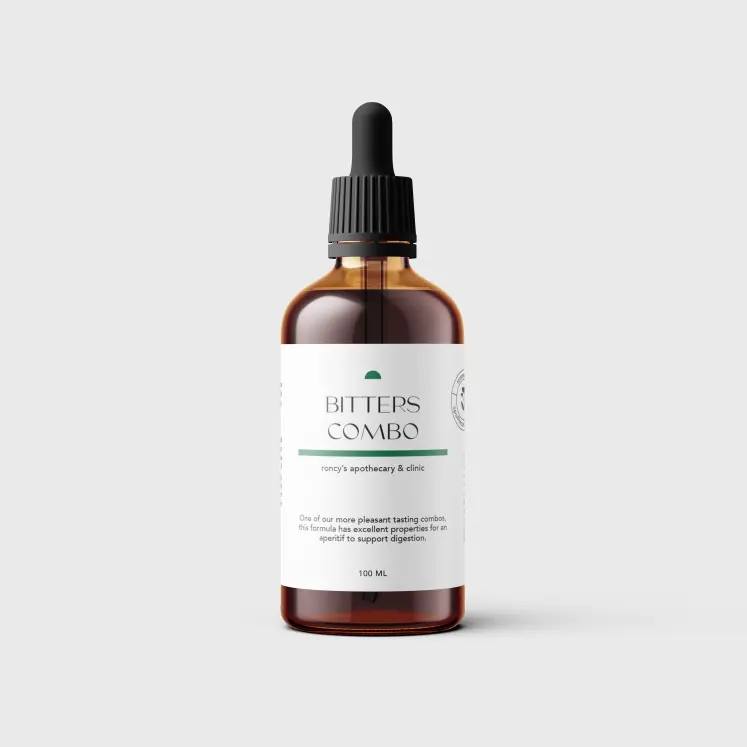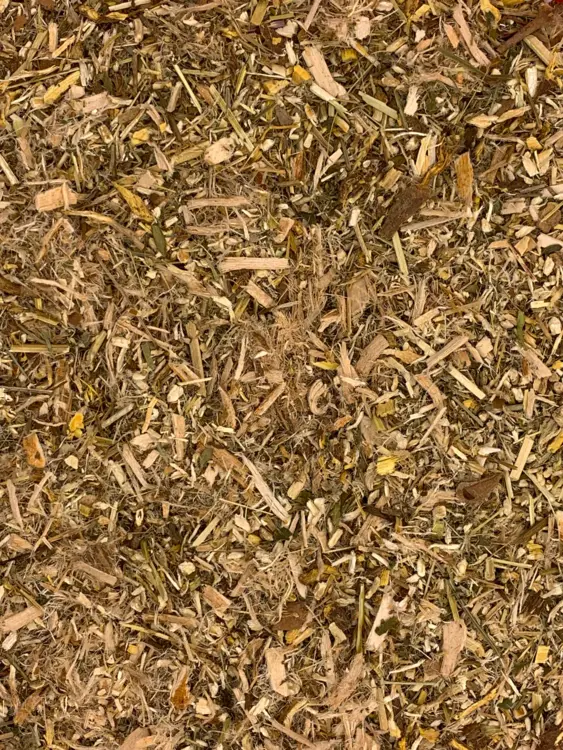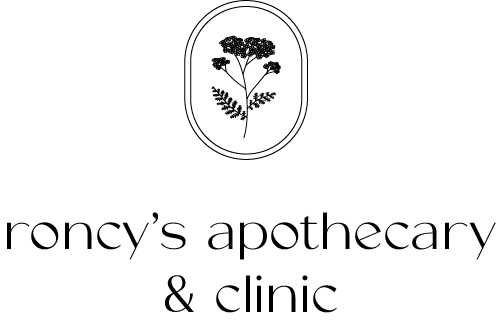Digestive harmony: Tips and strategies for optimized gut health
Welcome to the world of digestive wellness, where the delicate balance of our brain-gut axis and digestive ecosystem is key to vitality and wellbeing. As advocates for holistic health, we’re thrilled to explore gut optimization and share practical tips for fostering digestive harmony. From mindful eating practices to healing herbs, join us on a journey to unlock the secrets of optimal gut health and embark on a path towards total wellbeing.
the brain-gut connection
importance of a healthy gut microbiome
In addition to the intricate neural network, our gut hosts a diverse ecosystem of bacteria, fungi, and other microorganisms— the gut microbiome!
A balanced microbiome is critical for supporting digestion, nutrient absorption, immune function, and mental health. Disruptions and imbalances can contribute to various health issues such as digestive symptoms, compromised immune function, and suboptimal mental health.
Emerging research links imbalances in the gut microbiome to health conditions including inflammatory bowel diseases (IBD), irritable bowel syndrome (IBS), allergies, autoimmune disorders, and even neurological conditions like Parkinson’s disease and depression. Fostering a healthy gut environment positively influences your microbiome for optimized health and wellness.
10 healing herbs for a happy & healthy gut
Explore a curated selection of herbs renowned for their digestive healing properties. Learn about the therapeutic benefits of each herb, from soothing inflammation to promoting digestion and relieving common digestive complaints. By showcasing nature’s medicine, we aim to empower readers to explore natural solutions for gut health.
1) Meadowsweet (filipendula ulmaria)
Meadowsweet, also known as queen of the meadow, is a perennial herb native to Europe and Asia. Meadowsweet contains salicylates, natural compounds with anti-inflammatory and analgesic properties, making it useful for soothing digestive discomforts such as heartburn, indigestion, and gastric ulcers. Additionally, its astringent properties can help tone and strengthen the lining of the gastrointestinal tract, promoting digestive health and integrity.
2) Chamomile (Matricaria recutita)
Chamomile, prized for its calming and soothing properties, has been used for centuries as a gentle remedy for digestive complaints. This herb has anti-inflammatory, anti-spasmodic, and carminative properties, making it effective for relieving symptoms of indigestion, bloating, gas, and stomach cramps. Chamomile tea is particularly popular for its relaxing effects on the digestive system and can help promote restful sleep, further supporting gut health.
3) Fennel (foeniculum vulgare)
Fennel, with its aromatic seeds, is a versatile herb used in culinary and medicinal applications. Fennel seeds contain volatile oils, which consists of anti-inflammatory, carminative, and digestive-stimulating properties. Fennel is commonly used to alleviate symptoms of bloating, gas, and abdominal discomfort, while also promoting healthy digestion and appetite regulation. TIP: you can chew a pinchful of fennel seeds as a post-digestive aid!
4) Peppermint (mentha piperita)
Peppermint is widely used in for its digestive benefits. Peppermint contains menthol, a compound with anti-spasmodic and carminative properties that can help relax smooth muscles in the digestive tract and alleviate symptoms of indigestion, bloating, and abdominal cramps. Peppermint teas are a popular choice for easing symptoms of irritable bowel syndrome (IBS) and promoting overall digestive comfort.
5) Anise (pimpinella anisum)
Anise, with its distinct sweet and aromatic flavor, has been used for centuries as a culinary spice and medicinal herb. Anise seeds contain essential oils, including anethole, which exhibit carminative, anti-spasmodic, and digestive-stimulating properties. Anise is commonly used to alleviate symptoms of bloating, gas, and indigestion, while also promoting healthy digestion and appetite. Anise tea or infused water is a simple and effective way to enjoy its digestive benefits.
6) Angelica (angelica archangelica)
Angelica root has been used for centuries in traditional medicine for their digestive and carminative properties. Angelica exhibit anti-inflammatory, anti-spasmodic, and digestive-stimulating effects, making it a great addition to alleviate symptoms of indigestion, flatulence, and abdominal discomfort, while also promoting overall digestive health and well-being.
7) Gentian (gentiana lutea)
Gentian, a bitter herb native to Europe, Asia, and North America, has a long history of use as a digestive tonic and appetite stimulant. Gentian contains bitter compounds, which stimulate digestive secretions, improve nutrient absorption, and enhance overall digestive function. Gentian is commonly used to stimulate appetite, alleviate symptoms of dyspepsia, and support liver and gallbladder function. Gentian tea or tincture can be taken before meals to promote healthy digestion and optimize nutrient absorption!
8) Slippery Elm (ulmus spp.)
Slippery elm, derived from the inner bark of the slippery elm tree, has a long history of use in traditional medicine for its demulcent and mucilaginous properties. When mixed with water, slippery elm forms a gel-like substance that coats and soothes the digestive tract, providing soothing relief from symptoms of gastritis, acid reflux, and inflammatory bowel conditions such as ulcerative colitis and Crohn’s disease. Additionally, slippery elm’s high fiber content can help regulate bowel movements and support overall digestive function.
9) Licorice (glycyrrhiza glabra)
Licorice root, prized for its sweet flavor and medicinal properties, has been used for centuries in traditional medicine to support digestive health. Licorice contains glycyrrhizin, a compound with potent anti-inflammatory and mucoprotective properties, which can help soothe and protect the mucous membranes lining the digestive tract. This herb is commonly used to alleviate symptoms of gastritis, acid reflux, and peptic ulcers, while also supporting liver health and promoting adrenal function.
10) Marshmallow root (althea officinalis)
Marshmallow root, derived from the marshmallow plant, is rich in mucilaginous compounds that form a soothing gel-like substance when mixed with water (similar to our slippery elm). This gel coats and lubricates the digestive tract, providing relief from inflammation and irritation associated with conditions such as gastritis, GERD, and irritable bowel syndrome (IBS). Marshmallow root’s demulcent properties can help soothe and protect the delicate mucous membranes of the gastrointestinal tract, promoting healing and restoring balance.
lifestyle strategies for optimized gut health
As we have learned earlier on, there are so many factors that play into our digestive and overall wellness! So let’s explore some nutritional and lifestyle strategies for a happy and healthy gut.
STRESS MANAGEMENT
Understanding the dynamic interplay between our brain and gut highlights the importance of managing our stress response and mental health for overall wellbeing. Incorporating coping strategies such as talking to a supportive friend, going for a walk, doing breathwork, or seeking professional help benefits both your mind and gut.
NOURISHING YOUR MICROBIOME
Fostering a healthy gut environment through nourishing foods positively influences your microbiome for optimized health and wellness.
Here are our top 3 ways to build a healthy gut microbiome:
- Variety is key: Just as a diverse ecosystem thrives on a wide array of species, a healthy gut microbiome consists of a diverse range of bacteria, fungi, and other microorganisms. To create this ecosystem, we want to diversify the types of foods we eat! Incorporate a colorful variety of vegetables, fruits, whole grains, legumes, nuts, and seeds into your day to provide a broad spectrum of nutrients that nourish different types of bacteria in the gut.
- Harness the power of prebiotics: Prebiotics, found in certain foods, serve as fuel for beneficial gut bacteria. Consume prebiotic-rich foods such as onions, garlic, leeks, asparagus, bananas, apples, oats, and flaxseeds to support the growth of beneficial bacteria in your gut, enhancing microbial diversity and function.
- Embrace fermented Foods: Incorporate fermented foods rich in beneficial probiotics, which provide many health benefits. Enjoy yogurt, kefir, sauerkraut, kimchi, kombucha, and miso to introduce a diverse array of probiotic strains to your gut, promoting microbial diversity and resilience.
MINDFUL EATING PRACTICES
Practicing mindful eating involves paying attention to the experience of eating, including taste, smell, texture, and appearance. Eat with intention and without distractions to enhance digestion and promote better nutrient absorption. Chew your food thoroughly and slowly, allowing your body to properly break down food particles and initiate the digestive process. Consider incorporating short periods of rest before and after meals to aid digestion and reduce digestive discomfort.
conclusion
Digestive health and gut optimization form the foundation of overall health. Whether you seek to alleviate digestive symptoms, support your immune system, or regulate your mood, cultivating a happy and healthy gut is often the first step. By incorporating these strategies into your daily routine, alongside some herbal remedies, we can help optimize your wellness and vitality from the root!
Need more support? Work with one of our holistic health practitioners!
–
Disclaimer: This blog is for informational purposes only and does not constitute as health advice or treatment. Always consult a health care practitioner before starting any regimen.
view our teamof naturopaths
learn more about our naturopathic team & find the right fit for you and your health goals.
shop digestive
herbal blends
herbalist and naturopathically approved formulations to help you optimize your gut health, naturally.





